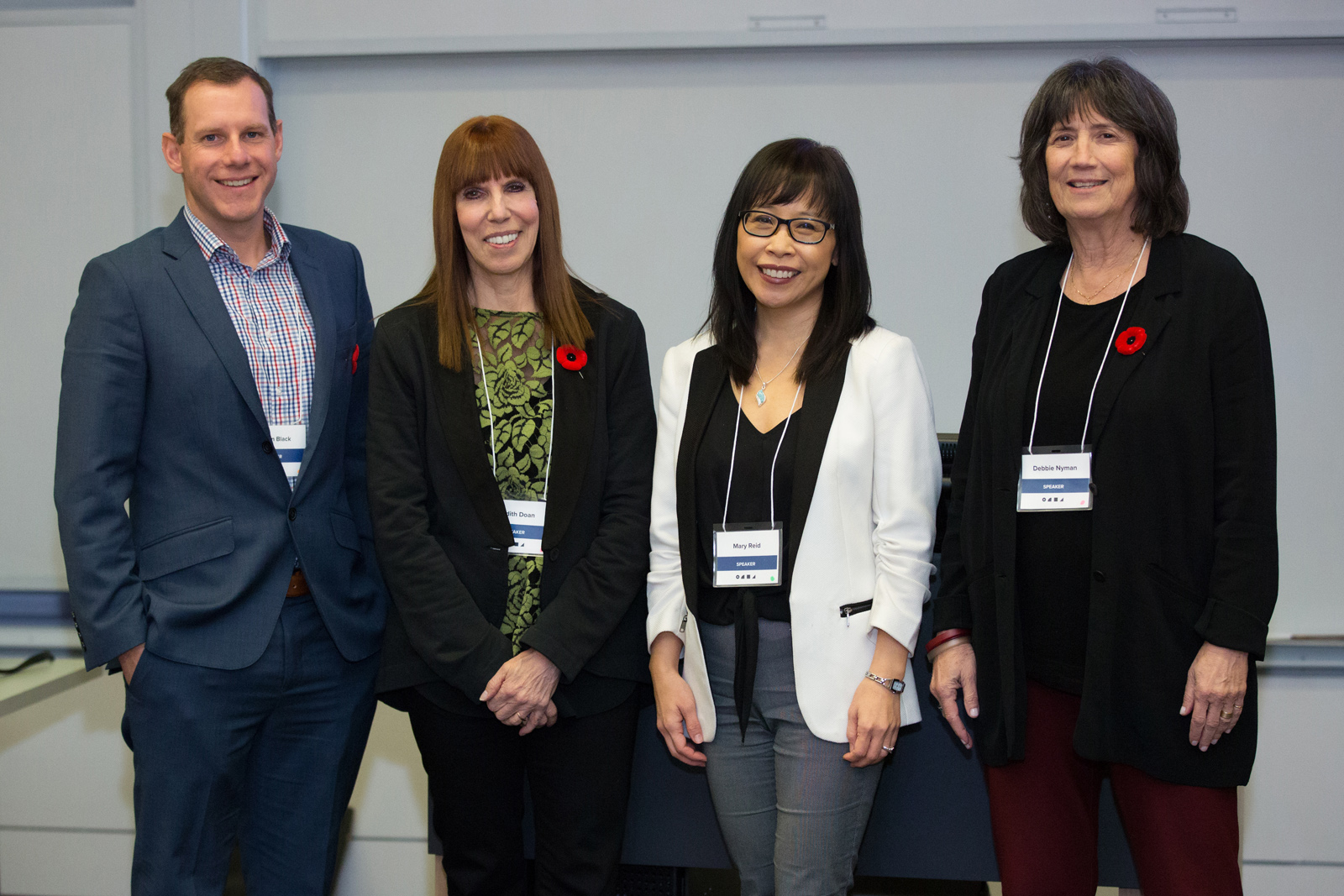Making Connections 2018 Featured Workshop:
Integrating global competencies across the curriculum
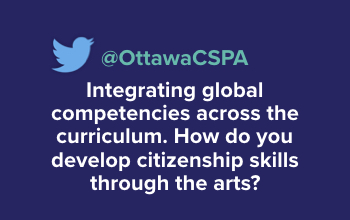 How do you develop citizenship skills through the arts? Can you really be creative in a math class? What do health competencies have to do with social studies? There is sometimes a tendency to dismiss things like creativity or social-emotional competencies as ‘soft skills’ that are not as important as content knowledge. But these so-called ‘soft skills’ are increasingly recognized as essential for future success. In this session, participants found out how they are teachable, learnable, can be integrated into any subject, and can be supported by parents at home.
How do you develop citizenship skills through the arts? Can you really be creative in a math class? What do health competencies have to do with social studies? There is sometimes a tendency to dismiss things like creativity or social-emotional competencies as ‘soft skills’ that are not as important as content knowledge. But these so-called ‘soft skills’ are increasingly recognized as essential for future success. In this session, participants found out how they are teachable, learnable, can be integrated into any subject, and can be supported by parents at home.
Speakers:
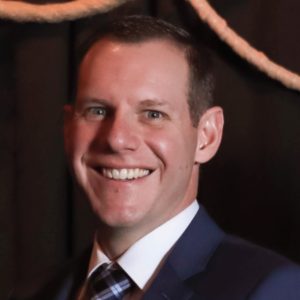 Mason is a secondary school teacher, teaching mathematics and computer science in Smiths Falls, Ontario. Over the past few years, his students have worked on major national and international projects in a cross-curricular approach to help honour Canadian soldiers that sacrificed their lives in one of Canada’s two most significant historical battles: the Battle of Vimy Ridge, and the D-Day Landings at Juno Beach in Normandy, France. The students that participated in these projects were rewarded the Lieutenant Governor’s Heritage Award, based on their dedication for helping to revisit, preserve and rewrite Canada’s history with an innovative approach by developing mobile applications. After recently completing his Master’s of Education, Mason is working on a new project with his students to develop a new iPhone app to interactively identify the significance of the Rideau Canal waterway that connects Kingston to Ottawa.
Mason is a secondary school teacher, teaching mathematics and computer science in Smiths Falls, Ontario. Over the past few years, his students have worked on major national and international projects in a cross-curricular approach to help honour Canadian soldiers that sacrificed their lives in one of Canada’s two most significant historical battles: the Battle of Vimy Ridge, and the D-Day Landings at Juno Beach in Normandy, France. The students that participated in these projects were rewarded the Lieutenant Governor’s Heritage Award, based on their dedication for helping to revisit, preserve and rewrite Canada’s history with an innovative approach by developing mobile applications. After recently completing his Master’s of Education, Mason is working on a new project with his students to develop a new iPhone app to interactively identify the significance of the Rideau Canal waterway that connects Kingston to Ottawa. 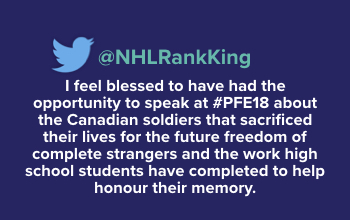 Additionally, Mason is in the process of developing a course based around computer programming in Minecraft, to help make coding more accessible for students of all ages and ability levels. Mason completed his post secondary education in Chicago after receiving a hockey scholarship, and is active in coaching a variety of sports in school and the greater community. He is also an active participant in the emerging field of hockey analytics – integrating mathematics and computer science with big data.
Additionally, Mason is in the process of developing a course based around computer programming in Minecraft, to help make coding more accessible for students of all ages and ability levels. Mason completed his post secondary education in Chicago after receiving a hockey scholarship, and is active in coaching a variety of sports in school and the greater community. He is also an active participant in the emerging field of hockey analytics – integrating mathematics and computer science with big data.
Mason on public education:
“I was extremely fortunate to have completed my formative education in Ontario’s public school system, which has more than prepared me for the rigours of higher education. I feel that it is my responsibility to acknowledge my privilege and give back by helping students to become globally aware and active citizens in creating a better world.”
Website: www.lest-we-forget.ca
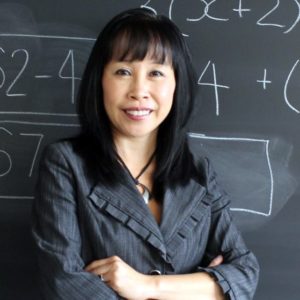 Dr. Mary Reid is an Assistant Professor in math education at University of Toronto’s Ontario Institute for Studies in Education (OISE). She brings extensive field experience to her academic role as a former classroom teacher, instructional leader, education officer at the Education Quality Accountability Office (EQAO), vice-principal, and principal. Mary is the proud recipient of OISE’s 2018 Teaching Excellence Award for Excellence in Initial Teacher Education. Teaching prospective teachers is the centerpiece of her work. Her research publications include studies about the math content knowledge of elementary pre-service teachers, math anxiety in the classroom, the gender gap in STEM, and building efficacy for math teaching. Mary was recently awarded a Social Sciences and Humanities Research Council (SSHRC) grant, to conduct research on how math content knowledge impacts pre-service teachers’ math knowledge for teaching. Her research and findings would be of interest to those seeking to enhance math teacher education through building math capacities of pre-service and in-service teachers.
Dr. Mary Reid is an Assistant Professor in math education at University of Toronto’s Ontario Institute for Studies in Education (OISE). She brings extensive field experience to her academic role as a former classroom teacher, instructional leader, education officer at the Education Quality Accountability Office (EQAO), vice-principal, and principal. Mary is the proud recipient of OISE’s 2018 Teaching Excellence Award for Excellence in Initial Teacher Education. Teaching prospective teachers is the centerpiece of her work. Her research publications include studies about the math content knowledge of elementary pre-service teachers, math anxiety in the classroom, the gender gap in STEM, and building efficacy for math teaching. Mary was recently awarded a Social Sciences and Humanities Research Council (SSHRC) grant, to conduct research on how math content knowledge impacts pre-service teachers’ math knowledge for teaching. Her research and findings would be of interest to those seeking to enhance math teacher education through building math capacities of pre-service and in-service teachers.
Mary on public education:
“My father used to say to me when I was little, ‘no one can take your education away, so make sure you get a good one.’ As an immigrant child who spoke limited English in the early 1970s, my parents valued the role of public education because it was the key to a better life and better future for their children. The public education system not only supported my academic growth, but it also nurtured my social emotional well-being and taught me the value of diversity and inclusivity. Today I am deeply honoured to be part of the public education sector as a university professor who teaches prospective teachers. There is no other profession that directly impacts students’ lives more than teaching in public education.”
Twitter: @drmaryreid
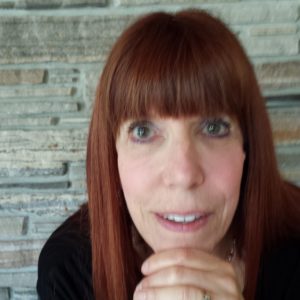 Teacher, learner, and advocate for the arts, equity, literacy, and social justice, Judith Doan is a Dramatic Arts and English teacher who is an ardent supporter of public education. With a colleague, she is currently researching the history of dance education in Ontario public schools for Dance Collection Danse as an adjunct to their dance archives. She is a past president of the Council of Ontario Drama and Dance Educators: CODE, and is an active member of their advocacy committee.
Teacher, learner, and advocate for the arts, equity, literacy, and social justice, Judith Doan is a Dramatic Arts and English teacher who is an ardent supporter of public education. With a colleague, she is currently researching the history of dance education in Ontario public schools for Dance Collection Danse as an adjunct to their dance archives. She is a past president of the Council of Ontario Drama and Dance Educators: CODE, and is an active member of their advocacy committee.
Judith on public education:
“Two quotes continue to resonate for me:
‘In a completely rational society, the best of us would aspire to be teachers and the rest of us would have to settle for something less, because passing civilization along from one generation to the next ought to be the highest honour and the highest responsibility anyone could have.’ – Lee Iacocca
At a CODE brainstorming session a group of teachers came up with the following statement:
‘Teaching is a never-ending dance to engage students thoughtfully and reflectively in the drama of life-long learning, to challenge them to listen to the music created within their souls as they visualize the art of possibilities for themselves and the world.’ “
Twitter: @judithdoan1
 Debbie is a Faculty Advisor in the Master of Teaching program and an instructor of Dramatic Arts Additional Qualifications at OISE/UT. She was a classroom teacher and instructional leader with the Toronto District School Board. Debbie has written curriculum documents and resources for the Toronto District School Board and the Ministry of Education and is the co-author of Drama Schemes, Themes, and Dreams (Pembroke Publishing) and Truth in Play:Drama Strategies for Building Meaningful Performances (Playwrights Canada Press). Currently Debbie is a member of the Advocacy Committee at the Council of Drama and Dance in Education.
Debbie is a Faculty Advisor in the Master of Teaching program and an instructor of Dramatic Arts Additional Qualifications at OISE/UT. She was a classroom teacher and instructional leader with the Toronto District School Board. Debbie has written curriculum documents and resources for the Toronto District School Board and the Ministry of Education and is the co-author of Drama Schemes, Themes, and Dreams (Pembroke Publishing) and Truth in Play:Drama Strategies for Building Meaningful Performances (Playwrights Canada Press). Currently Debbie is a member of the Advocacy Committee at the Council of Drama and Dance in Education.
Debbie on public education:
“I strongly believe in the power of the collective to inspire, motivate, generate ideas and encourage deeper thinking in the students and teacher. The collective in the public school system includes children and teachers from a variety of backgrounds, cultures, creating a rich and diverse group of voices from which to learn about the world. I also believe in the community school to bring together children with differing strengths and interests to allow for a variety of strong programs including the arts, technology, sciences and maths. A strong public community school educates the whole child and connects and strengthens all members of the community.”
Twitter: @nymandeb
